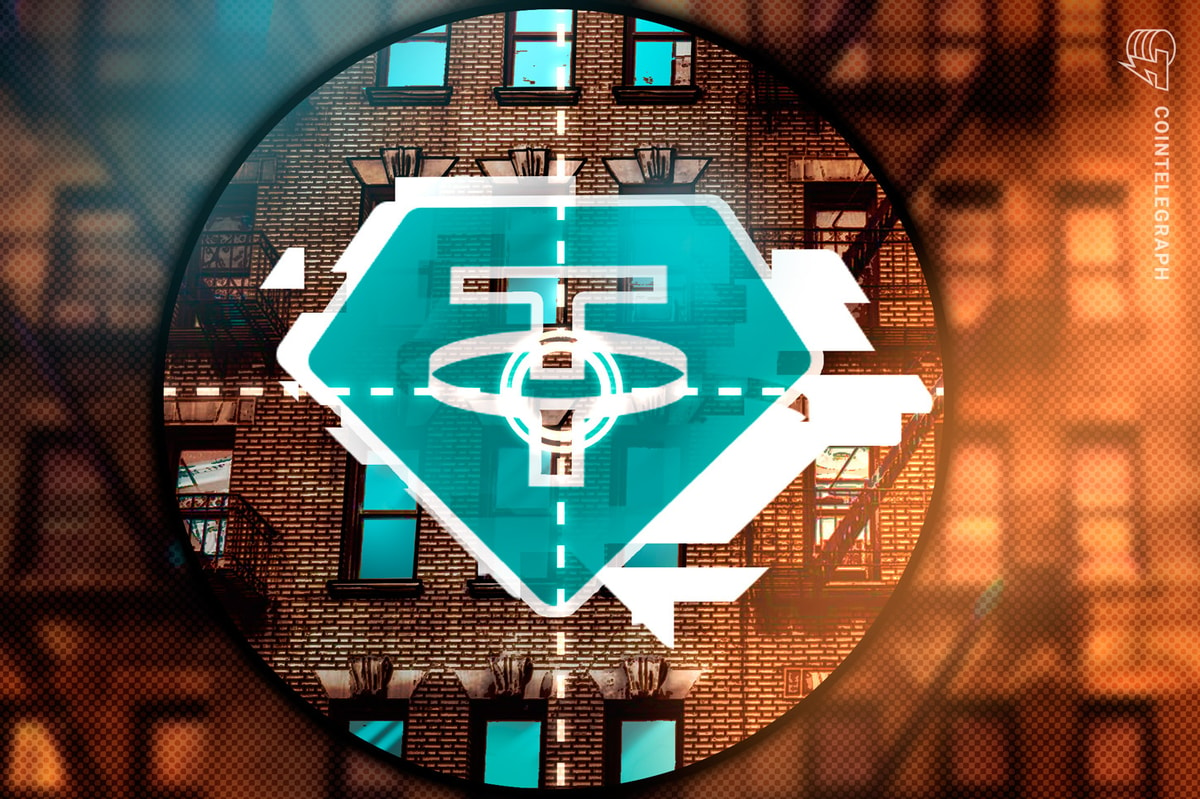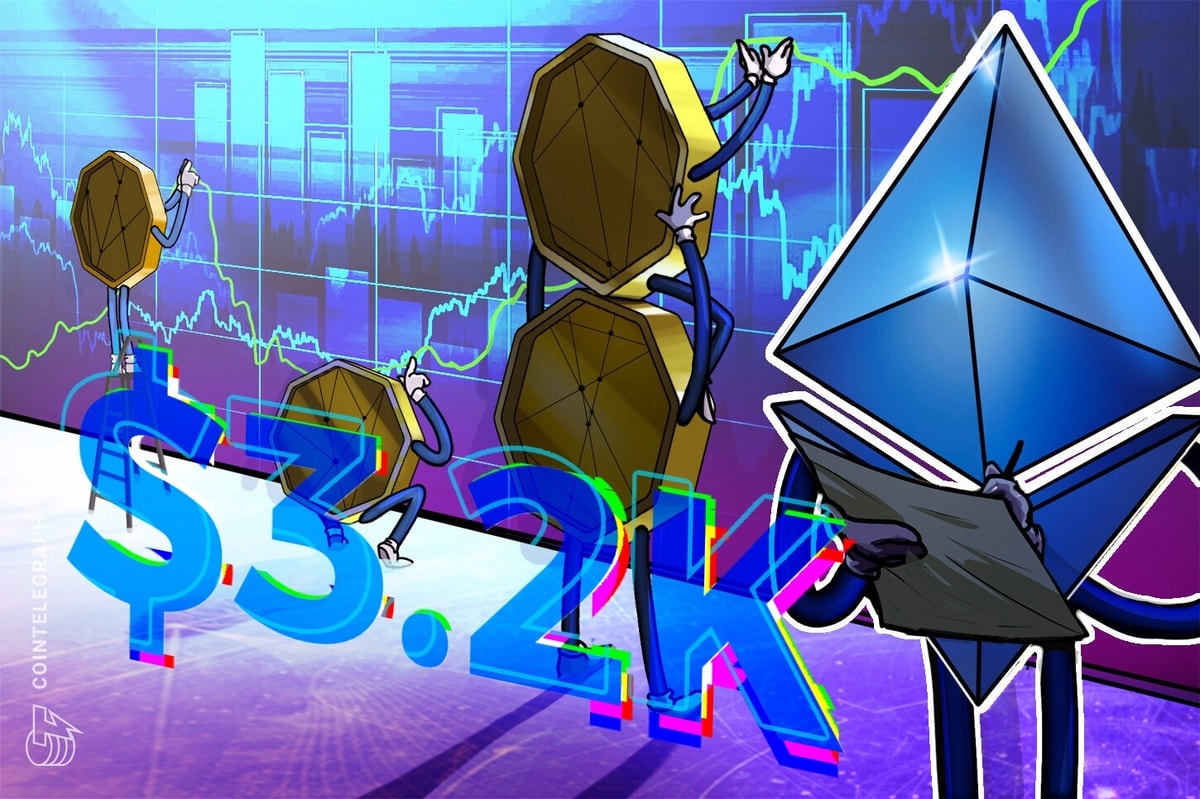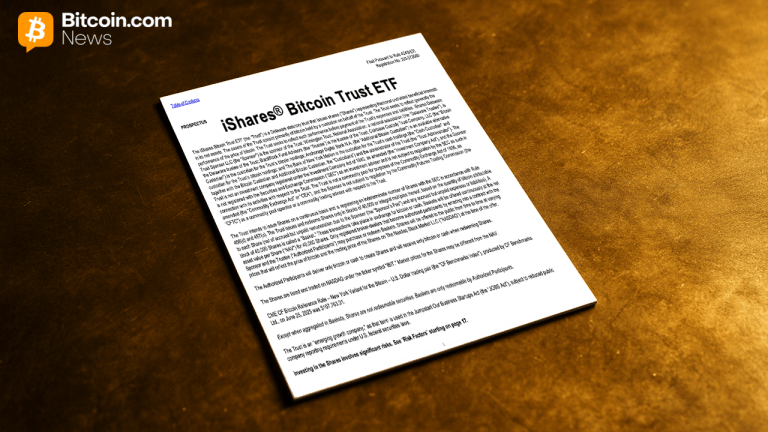Nifty News: Yuga Labs jumps on Ordinals hype, Dookey Dash key sells for 1,000 ETH and more…
4 min read
Bored Ape Yacht Club (BAYC) creators Yuga Labs has announced a new NFT collection on Bitcoin dubbed “TwelveFold.”
The move was announced via Twitter on Feb. 28, with Yuga Labs unveiling 300 tokenized computer generated artworks as part of the TwelveFold collection that will go up for auction later this week.
Introducing TwelveFold. A limited edition collection of 300 generative pieces, inscribed on satoshis on the Bitcoin blockchain.https://t.co/aFWEIhzqcI pic.twitter.com/PjWABKKBr4
— Yuga Labs (@yugalabs) February 27, 2023
In an accompanying blog post, Yuga Labs explained the concept behind the collection is based on mathematics, time and the Bitcoin blockchain.
“TwelveFold is a base 12 art system localized around a 12×12 grid, a visual allegory for the cartography of data on the Bitcoin blockchain,” the post reads, adding that:
“Satoshis are the smallest individually identifiable units of a Bitcoin. An inscribed satoshi can be located by tracking when that satoshi was minted in time via the Ordinal Theory protocol.”
“Inspired by this, our collection explores the relationship between time, mathematics, and variability,” it explained.
Yuga Labs cited the recent buzz around Bitcoin NFTs, or Ordinals, as the reason why it chose to drop a collection on the network.
“Stepping into the Ordinals Discord a month ago felt like getting a glimpse of the 2017-era Ethereum NFT ecosystem. It’s the type of energy and excitement we love at Yuga,” the firm stated.
Yuga Labs is launching an Ordinal Inscription collection on Bitcoin.
The instructions on how to acquire them involves running a self-custodial Bitcoin wallet, requires an empty Bitcoin address, and all bids will be in bitcoin.
They also provide a guide to Bitcoin UTXOs. pic.twitter.com/NQJeZQaagp
— Eric Wall | Taproot Wizard #2 (@ercwl) February 27, 2023
Search down, trading up
According to Google Trend data, search interest for NFTs has fallen to levels not seen since early 2021 — before the NFT boom — suggesting interest could be waning for nonfungible tokens.
NFT trading volume data from February however, suggests otherwise.
Google Trends uses a metric of 0-100 to display interest in various keywords that people look up in its search engine. Between Feb. 19 and Feb. 25, the keyword “NFTs” scored a mere seven out of 100.
Such levels haven’t been seen since early-to-mid January 2021, while it has been a steep decline since the all-time high of 100 between Jan. 23 and Jan. 29, 2022.
NFT trading volume in February paints a different picture however.
According to data from CryptoSlam, there has been $997.14 million worth of global NFT sales for the month, following on from the $1 billion posted in January.
These levels bring the NFT market back to that of June 2022 and its $982 million worth of sales, before dipping to a low of $460 million in October 2022.
More recently, sales volume has been on a significant incline, with the launch of the trader-friendly marketplace Blur being a key contributor behind this.
Twitch streamer sells Dookey Dash key for 1,000 ETH
The man who won the Golden Key NFT for posting the highest score on the BAYC-affiliated Dookey Dash game has sold the token for 1,000 Ether (ETH), or roughly $1.63 million.
Twitch streamer Kyle Jackson, also known by his pseudonym Mongraal online, initially received the key on Feb. 16 after notching a hefty 928,522 points during the Dookey Dash competition hosted by Yuga Labs.
Wasting no time, Mongraal announced on Feb. 27, that he had agreed to sell the key to Adam Weitsman, BAYC NFT hodler and CEO of scrap metal shredding company Upstate Shredding.
I have agreed to sell the key for 1000 ETH to @AdamWeitsman. Super nice guy and thrilled the sale went through with him.
A special thank you to @yugalabs for hosting an incredible competition. I look forward to competing in future events. Royalties will be paid in full.
1/2— Mongraal (@Mongraal) February 27, 2023
The Golden Key is bound to unlock something special from Yuga Labs, however, the specific details have not yet been revealed.
Polygon pens another major partnership
Polygon Foundation, the non-profit organization behind Ethereum-layer 2 scaling network Polygon, has partnered with South Korean multinational conglomerate Lotte Group to host the firm’s NFT projects.
According to a Feb. 27 announcement from Lotte’s marketing and NFT hub, Daehong Communications, the partnership will see Lotte’s avatar-based NFT project BellyGom ported over to Polygon from the Klatyn network.
The project will be rebranded as BellyGom season 2, and the NFTs offer hodlers benefits relating to Lotte’s product and service lines such as shopping discount coupons and hotel vouchers. New additionally benefits have been teased moving forward, but details were sparse in the announcement.
Lotte has nearly 100 different business units across areas such as fast food, candy manufacturing, electronics and hotels. As of September 2022, the firm is estimated to have around $15 billion worth of assets on its balance sheet.
Looking more broadly, the firm has outlined intentions to develop its Web3 initiatives in partnership with Polygon, as Lotte looks to expand its NFTs to a global audience and develop “a new NFT business model rather than simply issuing NFTs.”
Related: Blur runs after OpenSea market share, but its success depends on upcoming governance proposals
The move adds to Polygon’s growing list of partnerships with major brands such as Startbucks, Adidas, Adobe and Prada.
Other Nifty News
According to a survey from metaverse platform, Metajuice, almost three out of four of the NFT collectors on its platform purchase NFTs for status, uniqueness and aesthetics.On the other hand, 13% percent of the survey participants said that they are buying NFTs to resell them in the future.
A group of well-known Japanese tech companies agreed on Feb. 27 to forward the creation of the “Japan Metaverse Economic Zone. Along with creating the Japan Metaverse Economic Zone, the agreement focuses on building an open metaverse infrastructure called “Ryugukoku,” which will spark the next wave of metaverse development.







